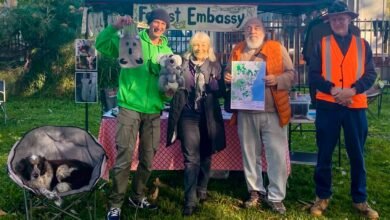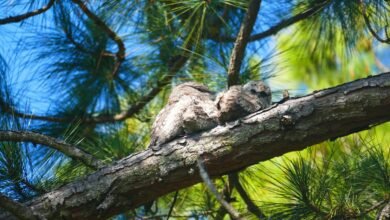Coffs Botanic Gardens, Monday Nov 4

With the car in for a service, what better way to spend a couple of hours?. Mothers with toddlers were doing their yoga by the Pavilion, a couple of tourists wandered through, followed by a group of developmentally disabled, then a school party appeared as I was leaving. What different pleasures these grounds offer.


Explorer and pirate William Dampier justified his explorations and collecting in A Voyage to New Holland: “the Things themselves in the Discovery of which I have been imployed, are most worthy of our diligentest Search and Inquiry; being the various and wonderful Works of God in different Parts of the World.” The odd thing is Dampier, a pirate for twelve years, leaves out the profit motive! Linnaeus was an imperial collector who Lisbet Koerner sees primarily NOT as a taxonomist, but a patriot obsessed with Sweden’s economic self-sufficiency (primarily through Rhubarb and Pearls, the title of my installation at the Macleay Museum, 2007).
Joseph Banks returned from here with Parkinson’s drawings and a mountain of specimens. He became president of the Royal Society and Keeper of the Royal Botanic Garden at Kew, this became the centre of imperial botanising, scavenging the world for plants that could be named, categorised and put to economic use.

And now food production is in the hands of very powerful corporations like Monsanto, and companies are using genetic material without appropriate reimbursement to indigenous communities for access to genetic resources.

Rick, the gardener, was telling me there are over thirty Brush Turkeys in the garden. They have had a population explosion and are causing quite a bit of damage.

Birds of all sizes – how come?
Charles Darwin’s grandfather, Erasmus Darwin who made the great leap forward by dismantling the Great Chain of Being and seeing evolution as historical, contingent and fluid i.e. an ecological process. Erasmus Darwin anticipated his grandson’s theory of evolution in The Botanic Garden (1789, 1791), Zoonomia; or the Laws of Organic Life (1793, 1801), Phytologia (1800), and The Temple of Nature (1803).
‘The Botanic Garden’ is an infamously long poem in grotesque couplets on scientific classification of plants and is unreadable . . . but . . . prior to this, the world was created and stuck for ever as Linnaeus, put it in Systema Naturae (1735), ‘Nullae species novae’, no new species in a perfect world. He can explain things in poetry (which influenced Shelley and impressed Coleridge).
First forms minute, unseen by spheric glass,
Move on the mud, or pierce the watery mass;
These, as successive generations bloom,
New powers acquire, and larger limbs assume;
Whence countless groups of vegetation spring,
And breathing realms of fin, and feet, and wing.
The Temple of Nature: 1: 295-302
Coleridge said that Erasmus Darwin, now a forgotten figure, had ‘a greater range of knowledge than any man in Europe.’ Poems can be informative nt just lyric or syntactically wild.



